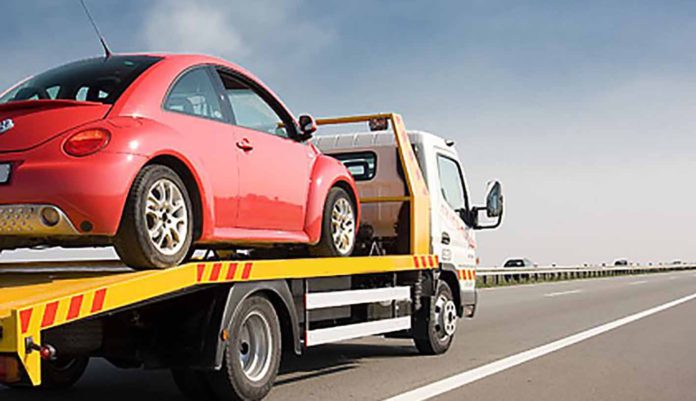The Centre for Transport Security Dialogue (CETSED) has lauded the Ministry of
Transport and the National Road Safety Authority (NRSA) over plans to reintroduce the mandatory towing levy.
According to CETSED, the decision follows a successful stakeholder engagement, which it has been advocating for, adding their cry and that of Ghanaians have not fallen on deaf ears.
“Road accidents caused by broken down vehicles along the roads and the major highways in the country continue to take precious lives and cause physical and emotional damage to Ghanaians.
“The Road Towing Levy is a bill that must be enforced as the principle of Regulation 103 to 105 of L.I.2180 promote safety on our roads as well as ensures that state institutions charged with the responsibility to ensure safer road transportation are well resourced.
“CETSED as a leading civil society organisation in transport after several deliberations with transport stakeholders; private and public, organisational and individual, has noted that the cost of the levy may be a challenge.
“But many have raised concerns on how the law will have in place a sanction regime that will ensure that vehicle towing companies that will be engaged across the country can be punished severely if their actions and inactions especially when disabled vehicles are left on our highways beyond the regulated time of an hour to two to cause accidents.
Stakeholders have further called for the accountability and probity of the bill.
“The alarming 11% of road crashes caused by disabled vehicles on our major highways will be reduced drastically if not entirely and at least for the sake of just a life that will be saved with the implementation of these sections of the law,” it said.
In view of this, CETSED in a statement stressed it will not relent in the pursuit of the full implementation of one of Ghana’s most beautiful laws that have been shelved because of political expediency and lack of proper education of citizens on the importance of L. I 2180.
The statement has also called on the Ministry and its agencies to take the issue of explaining the importance of the law to the citizens very seriously.
“We have already taken note of several gaps in the PR strategy adopted so far by spokespersons of the National Road Safety Authority and wish to advise that a serious public education must be embarked on across the length and breadth of Ghana.
“Just limiting it to media interviews and stakeholder engagements may not help the process and may lead to another rejection by the citizens as happened in 2017,” the centre appealed.
After careful deliberations and considerations, CETSED proposes that the bill must be criminalised to foster accountability on the part of the towing company and the driver or owner of the broken-down vehicle.
“If the driver or owner of a broken-down vehicle refuses to report the broken vehicle as stated by the law and it causes an accident, the driver or owner of the vehicle should be punished.
READ ON:
“Punishment should be stiffer as the law states in the form of fines, compensation to the victims, and jail time,” it added.
CETSED strongly believes that this approach of criminalising the bill would benefit all parties involved and bring some level of accountability which most Ghanaians are genuinely advocating for.
“If a towing company refuses to tow a broken-down vehicle two (2) hours after it has been reported to them and it causes an accident, they should be fined, compensation should be paid to the victims of their negligence, a possible jail time and their license should either be suspended or revoked depending on the gravity of the accident caused,” the statement urged.

